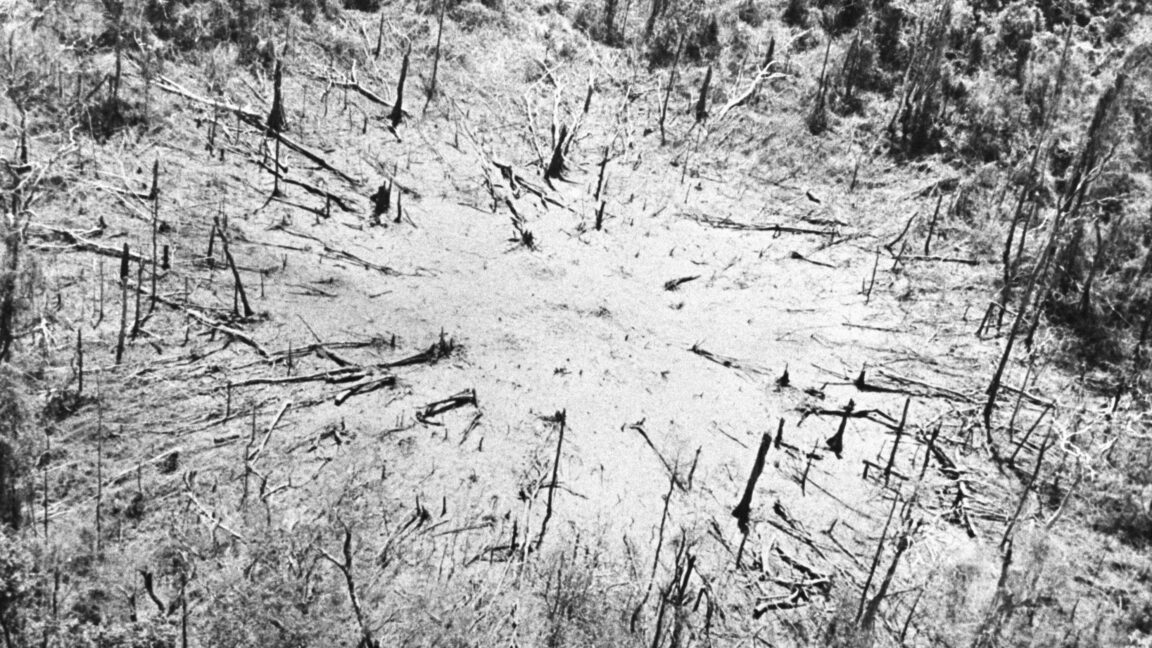
"The long-term ecological impact of the Vietnam War, including degraded ecosystems and dioxin-contaminated soils and waters, remains evident fifty years later."
"Despite efforts to restore damaged landscapes in Vietnam post-war, the ecological consequences remain largely unaddressed, raising concerns about similar outcomes in current conflicts."
"International treaties aimed at protecting the environment during warfare have yet to compel effective post-war restoration measures, as evident in both Vietnam and ongoing conflicts."
"The way the U.S. military employed environmental modification technologies during the Vietnam War, such as Agent Orange and napalm, exemplifies the destructive potential of modern warfare."
The article discusses the enduring ecological devastation resulting from the Vietnam War, particularly due to herbicides and environmental modifications used by the U.S. military. After decades, Vietnam continues to suffer from the effects of dioxin-contaminated landscapes and underfunded restoration efforts. The piece draws parallels to ongoing conflicts in Ukraine and the Middle East, emphasizing that international treaties aimed at environmental protection during warfare remain ineffective in ensuring post-war recovery, calling attention to the slow progress and long-term consequences for affected ecosystems.
Read at Ars Technica
Unable to calculate read time
Collection
[
|
...
]